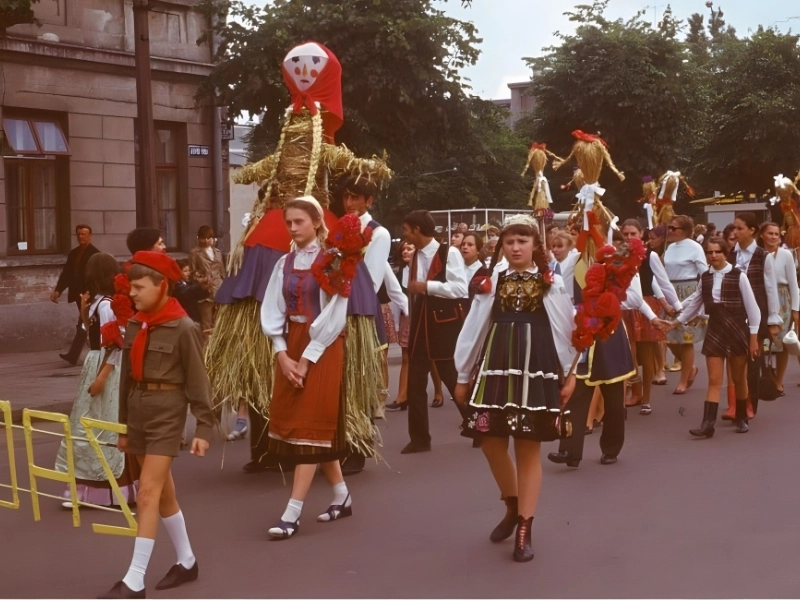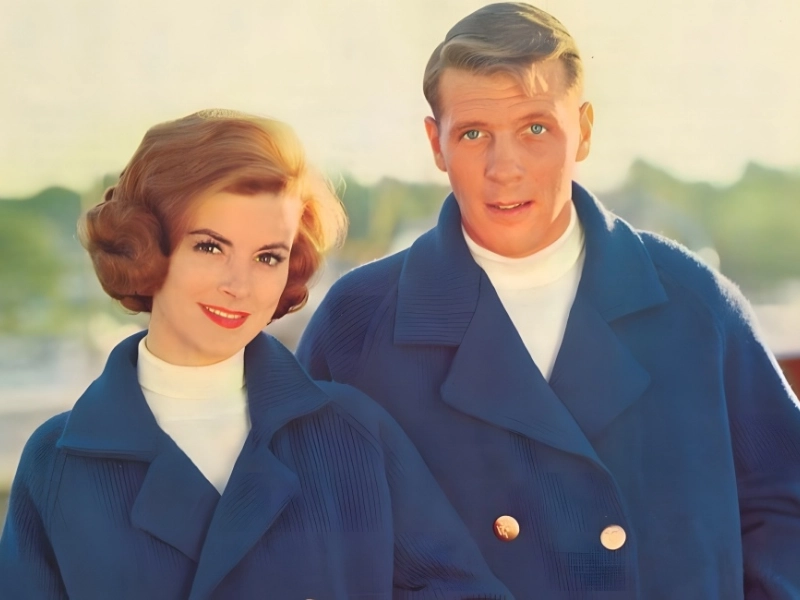7. Thanksgiving Day
Where: United States;Cost: $9.12 billion in 2022 budget
In America, this wild, post-Thanksgiving festival is called Black Friday. Millions of people go to the stores on the Friday after Thanksgiving each year to take advantage of the "Black Friday Sales," which offer steep discounts on a wide range of products, including flatscreen TVs and food.

Thanksgiving Day © Flickr/Jessica McGowan
Over $9 billion was spent on Black Friday in 2022, both in-person and online. Naturally, there are always goofy antics associated with Black Friday, such as individuals queuing up outside Best Buy at one in the morning and drag-out fights breaking out at Walmart.
8. Games of Poetry
Where: NorwayThe price of an Easter egg
Norway celebrates Valentine's Day by playing games of poetry using short, humorous poems known as gaekkebrev.The poems are transmitted anonymously, and the sender's identity is only revealed by a tiny dot that corresponds to a letter in their name.

Poetry Games ©Shutterstock/viki2win
A few months later, as the vibrant and joyous Easter season approaches, a delightful and engaging tradition unfolds. This custom revolves around the exchange of poems and Easter eggs, creating an atmosphere of mystery, anticipation, and fun among participants.
The tradition begins with individuals secretly sending poems to their chosen recipients. These poems are often crafted with care and creativity, containing clues or hints about the sender's identity. The recipient of the poem is then tasked with the challenge of deciphering these hints and guessing who the sender might be. This guessing game adds an element of excitement and intrigue, as recipients ponder over the clues and try to piece together the identity of their secret admirer or friend.
When Easter arrives, the moment of revelation and reward comes into play. If the recipient successfully guesses the sender's identity, they are rewarded with an Easter egg, a symbol of new beginnings and joy. This egg is often beautifully decorated and filled with treats, serving as a token of appreciation and celebration. The act of giving the Easter egg signifies the successful connection between the sender and the recipient, and it reinforces the bonds of friendship and community.
However, the tradition also includes a playful twist. If the recipient is unable to correctly guess the sender's identity, the roles are reversed. The sender then reveals themselves, and the recipient must offer an Easter egg to the sender as a gesture of goodwill and sportsmanship. This exchange not only adds to the festive spirit but also ensures that everyone involved experiences the joy of giving and receiving.
The entire process, from the initial poem delivery to the final exchange of Easter eggs, fosters a sense of camaraderie and engagement among participants. It encourages creativity, thoughtfulness, and a sense of connection, as individuals take the time to compose meaningful poems and engage in the guessing game. The tradition highlights the importance of community and the shared joy of celebrating together.
In essence, this Easter tradition of exchanging poems and Easter eggs is a charming and heartwarming practice that brings people closer, infuses the season with fun and mystery, and celebrates the spirit of giving and friendship.
Recommended Reading: You Won’t Believe the Size of These 14+ Common Objects
You are viewing page 3 of this article. Please continue to page 4











A conspicuous absence of fluff.
I’d test this today. Anyone joining?
Anticipates lifecycle transitions.
Subscribing to this mindset.